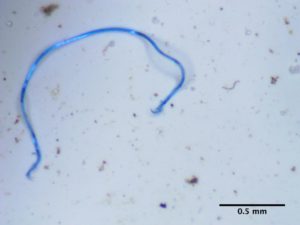 You may not think of your clothes as pollutants, but tiny plastic fibers from synthetic textiles (microfibers) are big contributors to water pollution. Clothes and fabrics made with synthetic fibers are using plastic fibers (e.g. polyester, nylon, acrylic, fleece and athletic clothing). When they are washed, they break apart in the washing machine, and so get into the wastewater system, and eventually into our rivers and oceans.
You may not think of your clothes as pollutants, but tiny plastic fibers from synthetic textiles (microfibers) are big contributors to water pollution. Clothes and fabrics made with synthetic fibers are using plastic fibers (e.g. polyester, nylon, acrylic, fleece and athletic clothing). When they are washed, they break apart in the washing machine, and so get into the wastewater system, and eventually into our rivers and oceans.
These microplastic particles are smaller than 5 mm. One 2011 study found that "Experiments sampling wastewater from domestic washing machines demonstrated that a single garment can produce greater than 1900 fibers per wash" (which then goes directly into wastewater). And while a 2017 study didn't examine sources of microfibers (air, rain, water treatment plants, etc) found in numerous Hudson River water samples, the researchers estimate that the entire Hudson River dumps 300 million human-made fibers into the Atlantic Ocean each day. Wow.
In the past few weeks a number of articles and studies have been published about these small plastic pieces (microfibers) that are found in our water - yes, in our drinking water, as well as our rivers, seas, and oceans. Which eventually get into birds, fish and shellfish - and so eventually into us. So the microfibers are in our food chain. There is tremendous concern over what that is doing to wildlife and to us, especially as the microfibers accumulate. We all use plastics every day and most of us wear clothing made of plastic fibers (synthetic fibers), and we're not about to stop. (NOTE: No matter what fabrics we wear, our clothing also sheds fibers into the air, so we leave a trail of fibers behind us, including at crime scenes. Synthetic and natural materials - such as cotton and wool, both shed.)
The big questions: Can anything be done to stop this water pollution? And what is it doing to us and wildlife? Today I am posting links to these stories because it is of concern to all of us and to future generations, and we need to think about and address this issue.
Excerpts from PBS News Hour: This New York river dumps millions of fabric microfibers into the ocean daily
The faded, “distressed look” of a favorite pair of blue jeans, may come with a hidden price for the residents of New York. The Hudson River dumps 300 million clothing fibers into the Atlantic Ocean each day, according to a recent study in the Marine Pollution Bulletin. Many of the fibers come from aging clothes, rinsed out with the laundry and into the environment. Approximately half of the fibers were plastic, while the remainder were spun from natural materials like cotton or wool. Invisible to the naked eye, these fibers can cause health problems for animals and humans.
Barrows, who has been studying microfiber pollution in oceans for more than five years, wanted to learn more about what’s happening upstream in freshwater. So last year, Barrows and a team of scientists and volunteers measured microfiber pollution across all 13,300 miles of the Hudson river..... The team found about one microfiber per liter of water, which seems small until you consider the sheer volume of the Hudson River. An average-sized, above-ground swimming pool filled with this water would contain about 10,800 microfibers, and the entire Hudson River dumps 300 million human-made fibers into the Atlantic Ocean each day. [Original Hudson River study.]
If wastewater treatment facilities are not the major culprit, people may want to look their everyday clothes. Fabrics cast off tiny threads at every stage of their life. Even crime scene investigators count on perpetrators leaving behind bits of clothing. “We are just not conscious of it,” Carr said. “It’s invisible, but everywhere you go and everywhere I go, we are leaving a trail of fibers in our wake.”
Pollutants and other fine particles can hang in the air and travel great distances, said George Thurston, who studies the health effects of air pollution at New York School of Medicine. These airborne fibers can also be toxic. During the industrial revolution, byssinosis or brown lung disease, befell textile plant workers due to cotton or other fibers in the factory’s air. But Thurston said more research is needed to ascertain how microfibers get around.
 Microfibers found in the Hudson River. Credit: PBS News Hour, Sara Cathey, Adventure Scientists
Microfibers found in the Hudson River. Credit: PBS News Hour, Sara Cathey, Adventure Scientists
An interesting article that describes the difficulty of capturing tiny plastic microfibers at sewage and water treatment plants in Minnesota. From MPR News: Microplastics could pose big treatment challenges
So-called microplastics are tiny — less than 5 millimeters across. They can come from litter or plastic bags that break down over time. ...."These small little threads, they find their way into the wastewater treatment system and then, into our aquatic environment."
Austin Baldwin, a hydrologist with the U.S. Geological Survey, studied the St. Croix, Namekagon and Mississippi rivers in 2015. The results were published earlier this year in a brief issued by the National Park Service. Baldwin's team found microplastics in all of the samples they took of water, sediment, fish and mussels. The level of concentration was surprising: They found as many as 111 microscopic pieces of plastic in a single fish. Scientists worry that microplastics might clog the digestive systems of fish and make them feel full, so they end up starving. Baldwin said there need to be more study of the biological impacts.
Microplastic fibers in the wastewater are so small they slip through filters and screens designed to capture larger particles. Hoellin's team sampled Chicago rivers and found higher concentrations of microplastics downstream of sewer plants. "What I've seen is that some wastewater treatment plants are really effective at retaining 99 percent of the microplastic that comes in as raw sewage," Hoellin said. "But even that 1 percent, when it's added up on a daily, yearly basis, is amounting to a lot of plastic pollution." Hoellin noted there's no legal requirement for wastewater plants to treat for microplastics. "
By the time the treated wastewater is discharged into the Mississippi River, Rogacki [Larry Rogacki, assistant general manager of the Metropolitan Wastewater Treatment Plant in St. Paul, MN] estimates that 96-98 percent of all microplastics have been removed. Retrofitting the plant to eliminate 100 percent of microplastics would require installing sand filters that could capture smaller particles, he said. It would be costly — close to $1 billion. ....What scientists say might be more effective — and less expensive — is to figure out how to keep plastic out of the wastewater stream in the first place.
 Is frequent sauna bathing beneficial? That's what one study suggests. When the study started all 1621 men (aged 42 to 60) had normal blood pressure and none had been diagnosed with hypertension, and the follow-up was about 22 years later. The study took place in Finland, where sauna bathing is an important part of the culture - for all men, from all walks of life. The study found that frequent sauna bathing lowered the risk of developing hypertension - 46% when comparing men who sauna bathed once a week vs those who sauna bathed 4 to 7 times a week.
Is frequent sauna bathing beneficial? That's what one study suggests. When the study started all 1621 men (aged 42 to 60) had normal blood pressure and none had been diagnosed with hypertension, and the follow-up was about 22 years later. The study took place in Finland, where sauna bathing is an important part of the culture - for all men, from all walks of life. The study found that frequent sauna bathing lowered the risk of developing hypertension - 46% when comparing men who sauna bathed once a week vs those who sauna bathed 4 to 7 times a week.
 Another article was published this month raising the issue of
Another article was published this month raising the issue of 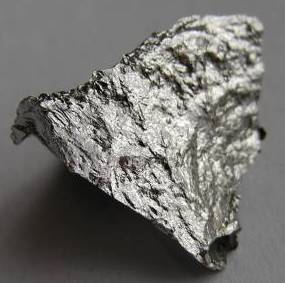 Two studies looked at manganese and found that high levels are associated with problems. Manganese is an essential trace mineral necessary for development, metabolism, the antioxidant system, and for normal brain and nerve function. Getting manganese through foods (e.g. nuts, seeds, whole grains) is beneficial, but ing
Two studies looked at manganese and found that high levels are associated with problems. Manganese is an essential trace mineral necessary for development, metabolism, the antioxidant system, and for normal brain and nerve function. Getting manganese through foods (e.g. nuts, seeds, whole grains) is beneficial, but ing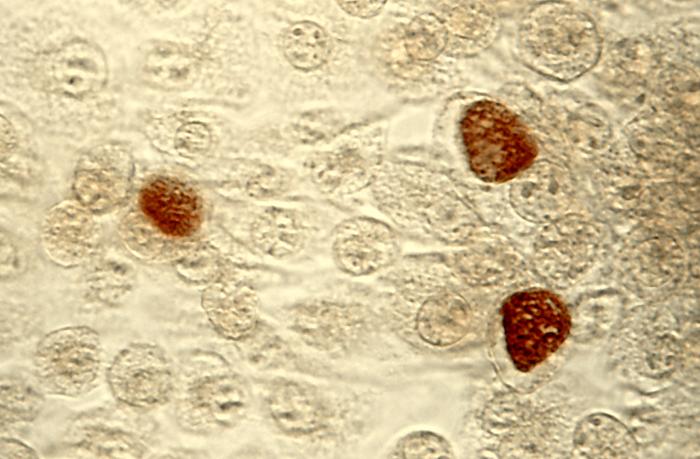
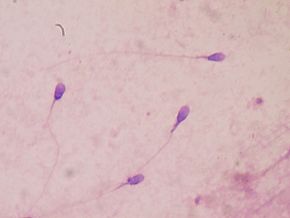 Another problem for overweight or obese men: an increased risk of poor sperm quality.
Another problem for overweight or obese men: an increased risk of poor sperm quality.  This is part 2 of posts about tiny particles of plastic (microfibers) in our water - which is a form of water pollution. These plastic fibers are smaller than 5 mm, and are
This is part 2 of posts about tiny particles of plastic (microfibers) in our water - which is a form of water pollution. These plastic fibers are smaller than 5 mm, and are 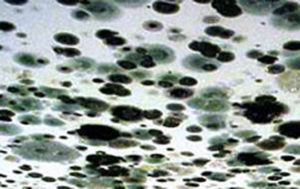 A number of people contacting me have indicated that living in a house or apartment with a mold problem led to their chronic sinusitis. And it wasn't the dreaded toxic black mold (varieties of mold which can cause serious neurological symptoms), but common molds that triggered their inflammatory reactions, respiratory symptoms, allergies, and eventually chronic sinusitis. All due to excessive mold exposure.
A number of people contacting me have indicated that living in a house or apartment with a mold problem led to their chronic sinusitis. And it wasn't the dreaded toxic black mold (varieties of mold which can cause serious neurological symptoms), but common molds that triggered their inflammatory reactions, respiratory symptoms, allergies, and eventually chronic sinusitis. All due to excessive mold exposure. Tattoos are very popular these days, with about
Tattoos are very popular these days, with about